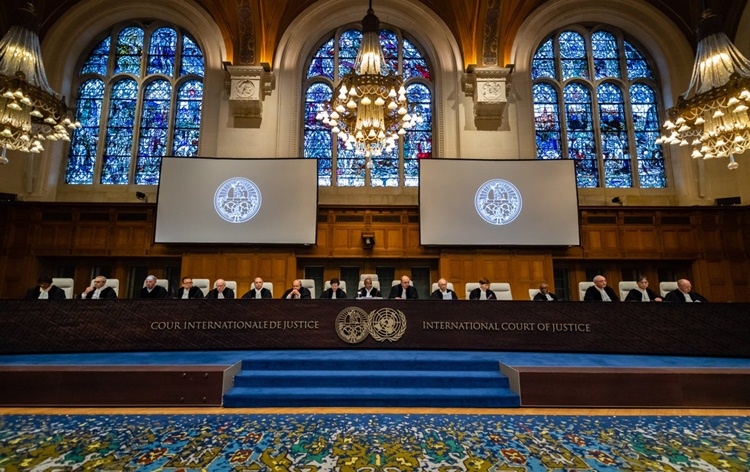ICJ orders Myanmar to take emergency measures to prevent genocide of Rohingyas
Fri 24 Jan 2020, 12:49:50

The Hague-based International Court of Justice has ordered Myanmar to take emergency measures to prevent the genocide of the Rohingyas.
The court also ordered Myanmar to report to them in four months on what measures the country has taken to comply with the order. The court asked to report every six months as the case moves slowly through the world court.
According to the ICJ, the court has the power to order provisional measures when irreparable prejudice could be caused to rights which are the subject of judicial proceedings. The court found that the condition of urgency had been met in this case.
The court's President Judge Abdulqawi Ahmed Yusuf said the International Court of Justice is of the opinion that the Rohingya in Myanmar remain extremely vulnerable.
The court added that its order for so-called provisional measures intended to protect the
Rohingyas is binding and creates international legal obligations on Myanmar.
Rohingyas is binding and creates international legal obligations on Myanmar.
In November the Gambia filed a suit against Myanmar alleging it was committing ongoing genocide against its minority Rohingyas population and violating the 1948 Genocide Convention.
The ruling by the International Court of Justice (ICJ) came days after a Myanmar commission concluded that some soldiers likely committed war crimes against the minority group but that the military was not guilty of genocide.
African nation Gambia brought the case against Myanmar after 740,000 Rohingyas fled over the border into Bangladesh, carrying accounts of widespread rape, arson, and mass killings.
The Gambia brought the case with the backing of the 57-nation Organization for Islamic Cooperation. Canada and the Netherlands have since also lent their support.
No Comments For This Post, Be first to write a Comment.
Most viewed from International
Most viewed from World
AIMIM News
Latest Urdu News
Most Viewed
May 26, 2020
Do you think Canada-India relations will improve under New PM Mark Carney?
Latest Videos View All
Like Us
Home
About Us
Advertise With Us
All Polls
Epaper Archives
Privacy Policy
Contact Us
Download Etemaad App
© 2025 Etemaad Daily News, All Rights Reserved.

.jpg)
.jpg)
.jpg)






.jpg)


.jpg)
.jpg)
.jpg)
.jpg)
.jpg)
.jpg)
.jpg)
.jpg)
.jpg)
.jpg)
.jpg)
.jpg)

















